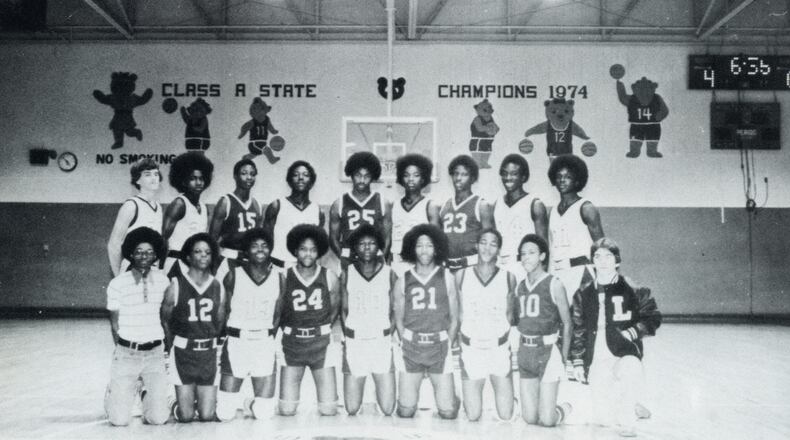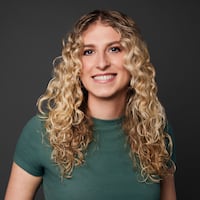Almost 30 years ago, former Atlanta Journal-Constitution journalist Douglas Blackmon published an op-ed in the Sunday edition on May 31, 1992, with the headline “The death of a dream.”
The article found Blackmon revisiting his hometown of Leland, Mississippi, on the 10th anniversary of his graduating class (although he moved away before he could graduate with them). Blackmon expected to return to his hometown 10 years later to write an article about how integration was going.
“Of course,” Blackmon said, “[I] discovered that it was the opposite, that integration had already begun to start falling apart.”
After the Supreme Court ruled in Brown v. Board of Education that racial segregation in public schools was unconstitutional in 1954, most southern schools made no effort to integrate. It wasn’t until 1969, when the Supreme Court ordered southern schools to desegregate immediately, that schools truly began integrating. When Blackmon entered first grade, he would be part of Leland’s first class of Black and white students to attend school together for all 12 years.
Credit: Courtesy of Douglas Blackmon
Credit: Courtesy of Douglas Blackmon
Now, over 30 years after the initial article was published, Blackmon’s film, “The Harvest,” will premiere on the PBS “American Experience” series on Sept. 12 at 9 p.m. With Emmy Award-winning filmmaker Sam Pollard as co-producer, the documentary looks back on the process of integrating Leland’s public schools through the eyes of the Leland residents who experienced it firsthand.
“It’s an interesting way to look at the story,” said Cameo George, executive producer of “American Experience.” “To just recognize that [integration] truly was a national story, but it was also a neighborhood story, like an individual neighborhood and community story that we all went through.”
Blackmon, a Pulitzer Prize-winning author and professor of practice at Georgia State University in the Creative Media Industries Institute, began work on “The Harvest” about ten years ago. After the first article, he wrote part of a manuscript based on his memories of the events and some reporting he’d done, but put it aside when he got a new job, he said. Years later, after attending a graduation ceremony at his former high school in Leland, he decided there was still a story to be told.
Blackmon reached out to Pollard, who had worked with him on a previous film, “Slavery by Another Name,” and so began their next partnership.
The story, many years in the making, is personal to Blackmon who interviews his parents and older brother throughout the film. Pollard, who was born in Harlem, New York, spent time visiting family and working on films in Mississippi as well, he said.
“I was pretty close to that state and the people in that state and the complex history of Mississippi from a racial perspective,” Pollard said. “This is a film that made a lot of sense to me.”
Credit: Courtesy of Five Dollar Films
Credit: Courtesy of Five Dollar Films
Through interviews with former classmates, faculty and family members, it follows the relationships Black and white students formed with each other over the course of 12 years, beginning from when Leland schools were segregated and following the first graders all the way into adulthood.
For Blackmon, looking back on this time in his childhood was a “powerful experience.” Upon returning to the manuscript he began 30 years earlier, he realized that “I shouldn’t be completely confident of my reliability as the narrator of my own story.”
“I need to go back and find other people who were part of all of these things and see how they remember it,” Blackmon said.
He reached out to classmates he hadn’t spoken to in more than 30 years, the Black and white students who were thrust into the classroom alongside him. Most of them were open to being part of this project, he said, and he found that the Black students in particular appreciated the chance to tell their stories and share their memories of integration.
Their recollections revealed that, in many cases, the end of segregation meant all students were funneled into the white schools, and the Black schools were soon abandoned, Blackmon said. Years of trophies, mascots and yearbooks were lost in favor of the new school’s traditions, and students who returned home in search of their high schools found them all but erased. In the film, he said they try to honor the history and trauma associated with the loss of these schools and memories.
“In the end, we’re really happy that it was a story that wasn’t simply being told on a white person’s terms,” Blackmon said.
Credit: Courtesy of Five Dollar Films
Credit: Courtesy of Five Dollar Films
The documentary will air on PBS a day after “The Busing Battleground,” a film about the efforts to end school segregation in Boston, and the violence Black students faced while busing across town to the newly desegregated schools.
“It’s fascinating to me to be able to see how northern white folks and southern white folks reacted to this notion of integrating in public schools,” Pollard said of the two films.
The documentaries were intentionally paired together, George said, as a way to show viewers that “every city, every town across America had their own experience of school integration.”
“Desegregating schools and integrating schools, this wasn’t just something that happened in courtrooms like in the Supreme Court or at the government level,” George said. “These are real people, these are real children of all ages who were put in these situations.”
Between individual vignettes and personal recollections, “The Harvest” reckons with the failure of Leland’s public schools to remain integrated, despite years of hard and painful work. It begs the question: were the immense struggles and sacrifices worth it even if Leland’s integration was, in many ways, a failure?
“The reality is that it did do good, it did work in important ways,” Blackmon said. “It’s just that we gave up too soon — our society gave up when it got too hard, when it felt too hard, and we need to work as hard as that again.”
WHERE TO WATCH
“Busing Battleground,” 9 p.m. Monday, Sept. 11, on PBS “American Experience.”
“The Harvest,” 9 p.m. Tuesday, Sept. 12, on PBS “American Experience.”
About the Author
Keep Reading
The Latest
Featured






